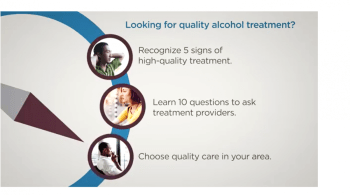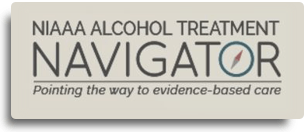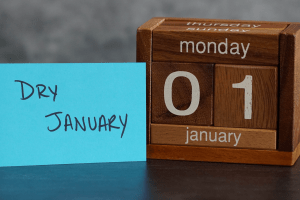
National Institute on Alcohol Abuse and Alcoholism (NIAAA)
NIAAA Alcohol Treatment Navigator: Pointing the Way to Quality Care
Welcome to my first-ever NIAAA Director’s Blog. I look forward to using this space to discuss significant advances in alcohol research and to highlight work supported by NIAAA. In this first installment, I would like to introduce you to an exciting and important new online resource developed by NIAAA – the Alcohol Treatment Navigator.
In any given year, more than 15 million adults in the US meet the diagnostic criteria for alcohol use disorder (AUD), but less than 10% of them receive treatment. Meanwhile, many of those in treatment may not receive the care that best fits their needs.
What accounts for this alcohol “treatment gap?”
Often, finding quality AUD care can be complicated, and many people aren’t aware of the full range of available treatment options. It can also be difficult to tell if a provider is offering good quality treatment – what we call “evidence based care” – that is, treatment that is grounded in clinical and health services research that demonstrates positive treatment outcomes.
During my tenure as Director of NIAAA, I’ve received numerous calls from colleagues and the general public asking for advice on finding “good” alcohol treatment providers – in or near their communities -- for their family and friends.
Those calls inspired us to develop the Navigator – which makes this complicated process easier by telling people what they need to know, and what they need to do, to recognize and choose quality care. This landmark resource is comprehensive, yet easy-to-use -- guiding the user through a step-by-step process to find highly-qualified treatment professionals. It helps them better understand their options, empowering families to help their loved ones, and giving health professionals a resource to share with clients who need a referral.

The Navigator helps create informed consumers by explaining AUD and the various treatment options available, along with tips on how to recognize five signs of quality care and steps to find quality treatment, including 10 questions to ask a potential provider. It also features several online directories of providers, with instructions on how to use them most effectively.
For more than two years, we worked to develop the Navigator by drawing on decades of scientific research on clinical interventions and health services delivery, and getting input from patients, families, treatment providers and researchers. I am grateful to everyone who contributed to this effort.
We believe that the NIAAA Alcohol Treatment Navigator will be a game-changer for people looking for quality treatment for AUD. We hope you will visit the site and go through it, then share it widely. And we plan to refine and update the Navigator regularly, so please give us your feedback. It is available at AlcoholTreatment.niaaa.nih.gov
Best wishes, GFK
Need Help for an Alcohol Problem?
If you’re having an emergency, call 911. If you are having suicidal thoughts, call 911, go to the nearest emergency room or call the toll-free, 24-hour National Suicide Prevention Lifeline at 1-800-273-TALK (8255) to help you through this difficult time.
The NIAAA Alcohol Treatment Navigator can help you recognize and find high quality treatment for alcohol use disorder. If you drink excessively, seek medical help to plan a safe recovery as sudden abstinence can be life threatening. NIAAA’s Rethinking Drinking can help you assess your drinking habits and provides information to help you cut back or stop drinking.








